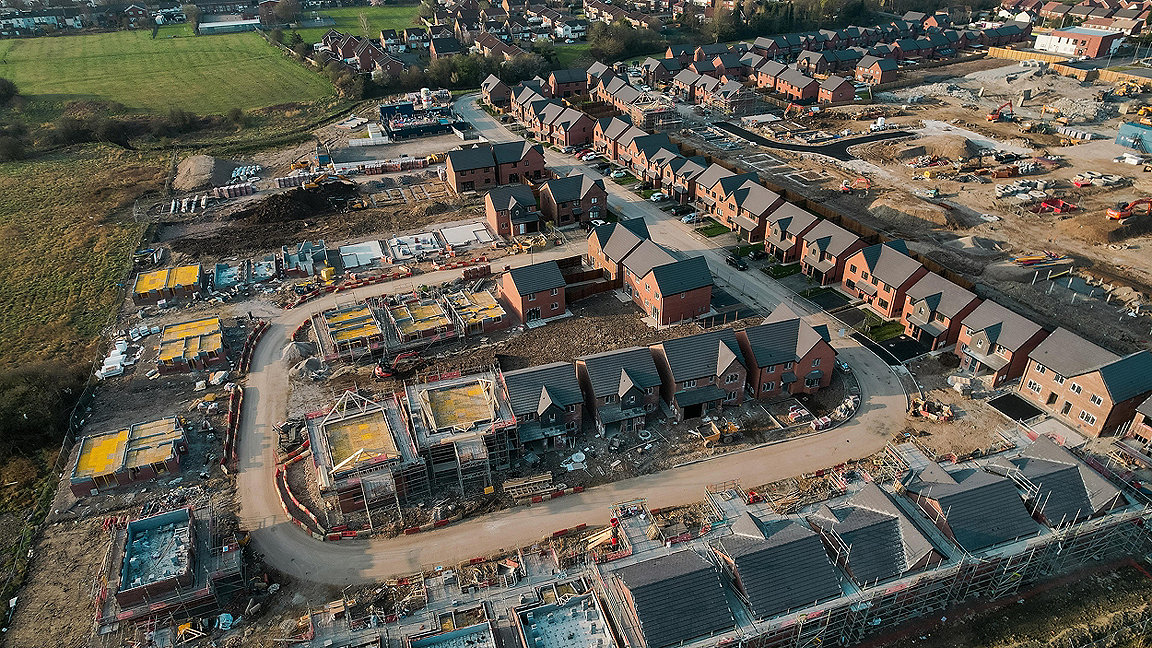
When the private-sector construction playbook Trust and Productivity was published in November 2022, it came at a challenging and complex time for the sector.
The aftershocks of the pandemic and ongoing global supply chain contractions have had a significant impact on our industry, and show few signs of easing in the short to medium term.
Construction is also facing up to ever-more complex challenges, such as net-zero carbon targets.
The playbook arose from a unique cross-industry collaboration, the Construction Productivity Taskforce (CPT). This group brings together leading developers, main contractors, supply chain members and cost managers, with the guiding principle of adopting more effective and collaborative practices.
At the heart of the playbook is the acknowledgement that the culture of the industry needs to change to enable investment in supply chains, embrace new ways of working and foster appropriate behaviours early in a project's life cycle to boost productivity, quality and value.
Private sector requires distinct approach
The scale of the problem is stark: growth in UK construction productivity has fallen by an average of 0.6% each year between 1997 and 2019. This lags behind that of other countries and also other UK industries. By comparison, the whole UK economy saw productivity growth of 2.8% in the same period and manufacturing saw 3.9% growth.
Whitehall is keenly aware of the problem, publishing its own construction playbook in 2020 that it updated last year. This focused on the power of government departments to transform behaviours through procurement and contracting practices.
Our playbook looks at how we can instil similar principles in the private sector. However, private investors and developers cannot map the same processes onto every project in the same way as a major public infrastructure or hospitals programme.
They must take into account a range of priorities, including investment decisions, design choices and changes in market appetite for different types of assets.
Specific accounting and reporting requirements from international clients and funders also vary from project to project.
The private-sector playbook is therefore much closer to a toolkit than a prescribed process. It offers a suite of guiding principles that are informed both by best practice and the collective experience of the authors.
Safety, sustainability and society are priorities
The playbook starts by establishing a number of ground rules on the non-negotiable principles that underpin all actions and processes that teams perform.
The highest priorities of these are health, safety and well-being on site during construction, as well regulation and design requirements around building safety through the asset's life cycle – in line with the requirements of the growing body of new legislation and guidance linked to the Fire Safety Act 2021 and Building Safety Act 2022.
The other non-negotiables are around sustainability and inclusivity. The construction industry has committed to improving sustainability and mitigate negative effects on the environment, as well as to building social value.
Across all these areas, developers need to make sure that results are measurable and meaningful, capturing data on areas such as energy performance and investment in local supply chains.
The playbook authors set out ten ways to ensure success based on their own experience and wider best practice, to underpin every project and overarch all the chapters. These are:
- forming effective partnerships
- adopting portfolio and longer-term contracting
- taking an outcome-based approach
- embedding digital information flows and technologies
- involving the supply chain early
- benchmarking objectives
- allocating risk fairly and appropriately
- paying fairly
- assessing the economic and financial standing of suppliers
- promoting innovation and continuous improvement.
Early engagement helps set clear objectives
Projects must have a clear outline of what success looks like, in the form of a statement of objectives that combines vision with strategy.
It's vital that we have a culture that establishes trust and has a clear, identifiable set of objectives to which all parties can look. Too often, teams focus on getting things moving rather than establishing consensus from investors to suppliers on what the end result needs to be or how our behaviours will get us there.
Decisions about engaging suppliers are critical. Early engagement with the supply chain – especially manufacturers and specialist contractors – can improve the efficiency of the design process.
The use of pre-construction service agreements (PCSAs) is encouraged to develop early, specialist contractor design and advice on practical buildability that factors in the requirements of logistics, scheduling and methodology to minimise risk on projects.
This improves certainty in decision-making, and ensures the non-negotiable priorities are as visible as possible.
From this point, clients can start to assess and apportion remaining risk appropriately and equitably. Faced with market uncertainty, developers need to be realistic and reasonable about where this risk should fall, by having frank discussions at the contract stage.
While clients, for example, may not want to go into a fluctuating contract, construction businesses are likely to be equally wary of settling for fixed prices in the current landscape.
To meet in the middle, both parties could review payment mechanisms and the way fixed price is allocated – say, by securing advance payments or promoting fair payment terms – to strike the right balance.
A digital strategy needs to be front and centre of these early project discussions. Emerging technologies such as modern methods of construction (MMC) and design for manufacture and assembly (DfMA), if more widely adopted, can improve the visibility of risk – and therefore the ability to manage it.
They will also become critical as the sector steps up efforts to track the provenance and performance of materials in terms of carbon and building safety.
Procurement strategy can support productivity
The playbook then analyses procurement practices that can be used to support productivity.
Processes in parts of the sector are too often characterised by a race to the bottom on price, rather than assessing broader values such as experience, collaboration and innovation from the supply chain.
Early engagement will help in setting up strategies that attract the right partners, while stronger management of bid evaluation when awarding contracts ensures these partners get through the door.
While many projects will procure on a case-by-case basis, there are benefits to adopting long-term portfolios and contracting where possible.
Part of the rationale behind the public-sector construction playbook has been that government clients have a clear pipeline of upcoming work, so that investment made through one project can be readily carried through to the next.
While this cannot be guaranteed in the same way in the private sector, thinking in terms of project pipelines can help build trust and improve consistency.
Careful site and change management critical
Part of this relationship-building comes down to day-to-day client behaviours. In a competitive market, offices and site set-ups need to be of a high standard to support a safe and healthy workforce.
Developers should commit to providing excellent facilities that instil professionalism and pride in their staff. This should also involve regularly engaging with staff, sharing feedback and conducting performance assessments.
While excellence on this front exists within parts of the industry, more work can be done to set higher standards across the board.
Another important part of management is any change to the project – an undesirable but sometimes inevitable part of any development. There needs to be an established change process in place with strong communication channels among the team, and a philosophy that encourages early intervention to limit the negative impacts.
Crucially, there must be an understanding that it is the responsibility of all parties to manage change, underpinned by a no-blame, no-surprises approach.
Modern technology should be embraced to reflect the increasing digitisation of construction, including augmented and virtual reality. Committing to digital can provide easier access to information, and make it far more straightforward to measure success.
'Developers should commit to providing excellent facilities that instil professionalism and pride in their staff'
Engaging occupiers on handover and aftercare
The playbook concludes by recognising that work doesn't stop after completion, and that there needs to be a proper handover strategy and effective aftercare through engagement with occupiers.
Building users should be brought on board early, and provision should be made for the contractor and design team to stay engaged through handover to make sure the asset is operating as intended.
Installing digital twins is another helpful way to manage this process, enabling reductions in running and maintenance costs and supporting a building's operation.
Firms take lead in implementing principles
As cost and project managers, Turner & Townsend alinea will continue to evangelise and embed the changes that the playbook advocates. We are fully aware of the role we play in shaping new behaviours, improving project culture and building trust.
If we can instil these ways of working on our programmes and projects with our clients, this will thread through the rest of the industry too.
We are already seeing the playbook in action on projects with fellow CPT member Great Portland Estates, incorporating its principles into preliminaries in the tender documentation, and assessing contractors' responses on both a quantitative and qualitative basis. This is helping establish clear objectives and outcomes that will stand these projects in good stead.
Fostering new behaviours in the private sector is vital to improving productivity across the board. If these philosophies are followed, then the industry can achieve its wider goals while building resilience to market volatility – and confidence that tomorrow's construction can be more productive than today's.
Marissa Stenning is an associate director at Turner & Townsend alinea and co-author of the private-sector playbook
Contact Marissa: Email

